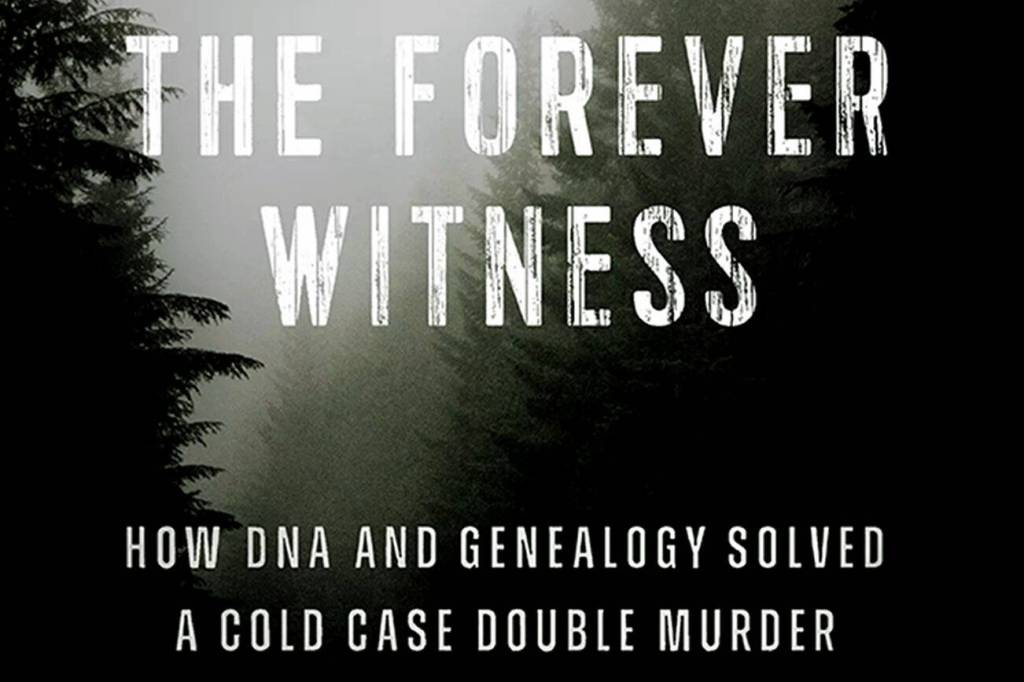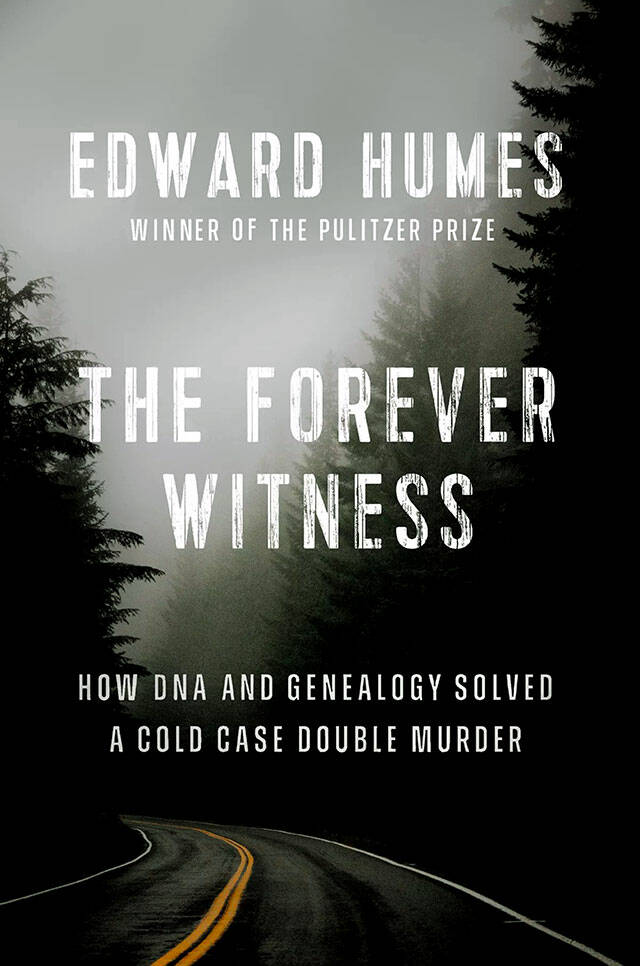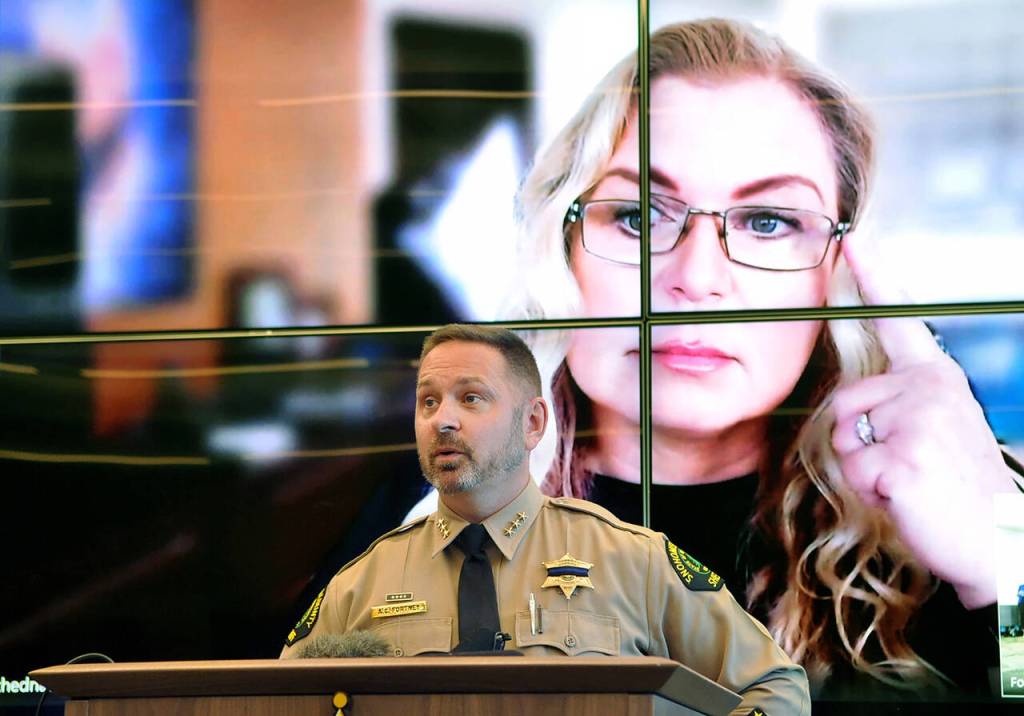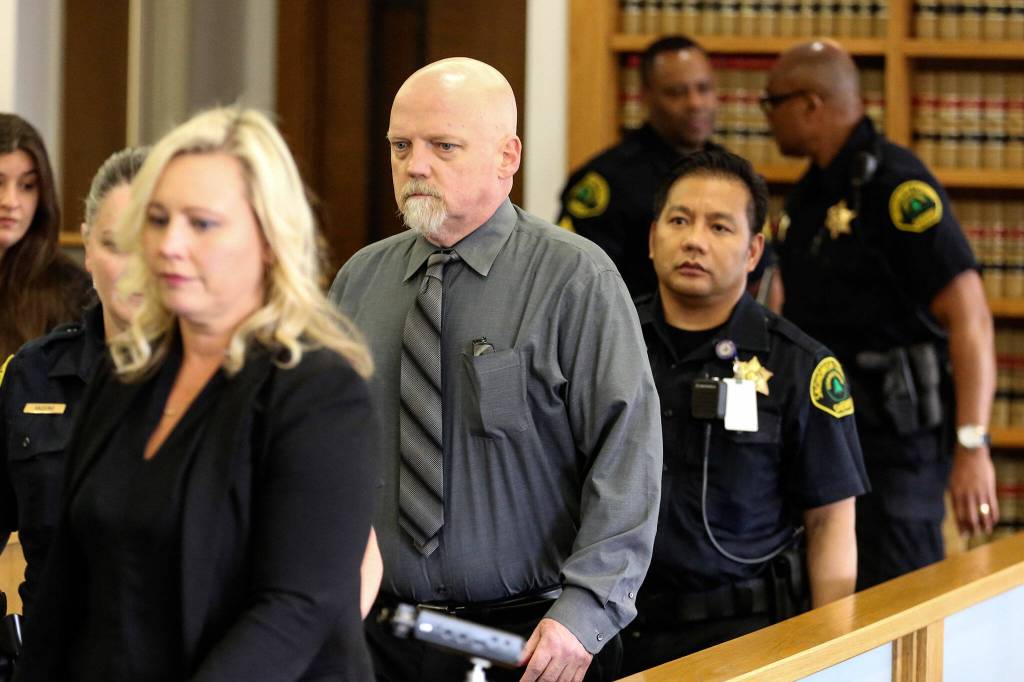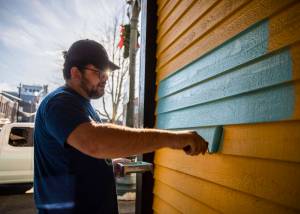Pulitzer winner’s new book digs into Snohomish County cold case killings
Published 1:30 am Sunday, November 27, 2022




EVERETT — It took longform journalist Edward Humes a few rewrites to find the right way to open his latest book, “The Forever Witness.”
Humes, a Pulitzer Prize winner in 1989, chronicles how a Snohomish County cold case pioneered a new method of solving seemingly unsolvable cases through forensic DNA technology.
Ultimately, the author brings the reader back to November 1987, through vignettes pulled from a rich cast of real-life characters affected by the brutal killings of Canadian couple Jay Cook, 20, and Tanya Van Cuylenborg, 18.
Snohomish County sheriff’s detective Jim Scharf, then a patrol deputy, emerges as a kind of guide for the story’s arc, which parallels the rise of DNA technology in criminal cases.
Meanwhile, the families of Cook and Van Cuylenborg, especially the two fathers of the slain Canadians, offer the “heart” to a book that aims to tell the human side of a true crime drama, while also balancing the clinical scientific angle of how forensic genealogy burst onto the scene. Since 2018, detectives around the country have turned to ancestry databases to crack cases with DNA evidence. This was one of the very earliest examples.
“There was a lot of coverage of this case when it broke,” Humes said in an interview with The Daily Herald, “and I’m sure you remember it was right on the heels of the Golden State Killer case, where it was first time most of us heard this thing called genetic genealogy. I don’t think we really understood what it was. But the tenor of the coverage was it was like this moonshot level effort to, you know, huge amounts of man hours and resources.”
On Tuesday, the author will mark the release of his latest book at a virtual event through the Everett Public Library, where he conducted much of his research. Humes traveled around the state and into Canada, incorporating accounts from experts, police and family members on both sides of the case.
“You really have to have strong characters and people that populate the story, so it’s not a book about issues,” Humes said. “It’s a book about individuals, on all sides of the case, that the readers can empathize with. This particular story has a wealth of amazing people involved at every level of the case, in both the major timeframes — 30 years in the past and today.”
“The Forever Witness” also recounts other cold cases near and far, with threads that would one day culminate in a breakthrough in the double murder.
“The more I learned, the more it resonated with me,” Humes said. “I would read this book, and as far as I knew, nobody else was writing it.”
In 1987, DNA was a novelty in a criminal trial, whereas today it’s perhaps the single most compelling piece of evidence a prosecutor can put before a jury.
That fall, the new couple from Vancouver Island rode in a bronze Ford Club van, taking two ferries on a trip from Saanich, British Columbia, to the SoDo neighborhood in Seattle, where they planned to pick up furnace parts for Cook’s father.
A passerby discovered Van Cuylenborg’s half-naked body on Nov. 24, 1987, off Parsons Creek Road in rural Skagit County. She had been shot in the head with a .380-caliber bullet.
Pheasant hunters found Cook’s strangled and battered remains on Thanksgiving 1987 under High Bridge, south of Monroe alongside the Snoqualmie River.
A Bremerton ferry ticket was later recovered from the van that had been abandoned in downtown Bellingham — the last sign of the couple being alive.
Semen samples were taken from the teenage girl’s body and inside the van. That evidence would lead to an arrest over 30 years later.
Humes does not shy away from some of the more difficult moments, such as the brief window before Cook’s body was found, when he was considered the prime suspect in the case.
“Tanya’s dad,” Humes said, “is like a figure out of Greek tragedy, with his relentless search, and how the outcome just crushed him. He was never the same after that.”
The crime befuddled detectives: It appeared to have been carried out by a sadistic stranger, who not only got away scot free, but taunted investigators by leaving behind evidence on purpose.
However, once a DNA profile was in the hands of genealogist CeCe Moore decades later, it took her all of a few hours to build family trees using public ancestry databases, narrowing down possible sources until she pinpointed a suspect. William Talbott II, now 59, was a SeaTac trucker who grew up in the Woodinville area, about 7 miles from where Cook’s body was found.
Today, Moore has likely cracked more cold cases than any conventional detective on the planet.
It was in 2019 when State v. Talbott became the first genetic genealogy case in the world to go to trial. Humes lived in Seattle at the time, and he observed the closely watched proceedings alongside journalists from The Daily Herald, KUOW, Wired and The New York Times.
The defendant was convicted of two counts of aggravated murder and sentenced to life behind bars. But the guilty verdicts have since been overturned by the state Court of Appeals on the grounds of one juror’s alleged bias. The soundness of the genetic technology was not questioned at trial or on appeal.
The state Supreme Court heard arguments in September. The court has not issued an opinion.
“No case is ever really done,” Humes said. “There’s always an appeal. Finality is rare. … This was less problematic than if, for instance, the appeal had been based upon some flaw in the evidence, in the science, in the DNA, or the genetic genealogy, or something substantive about the case — and those are yet to be litigated. There will be more years of that, probably.”
Humes won the Pulitzer for specialized reporting in 1989, while working at the Orange County Register. His investigative work showed how inadequate night goggles could be linked to dozens of helicopter crashes. He has written true crime before, including the nonfiction book, “Burned: A Story of Murder and the Crime that Wasn’t.” Humes said he is now working on a sequel to “Garbology: Our Dirty Love Affair with Trash,” his 2012 book on “America’s biggest export.”
One voice is notably absent from his newest book: the defendant’s.
“So that was that was a big gap,” Humes said. “But perhaps if (Talbott) has a new trial, he will tell his story at some point.”
This month marks 35 years since the Canadian couple set out on their ill-fated trip to Seattle.
Caleb Hutton: 425-339-3454; chutton@heraldnet.com; Twitter: @snocaleb.
The Everett Public Library will host a virtual event with Pulitzer Prize-winning author Edward Humes at 6 p.m. Tuesday, Nov. 29, as he discusses his new true crime book, “The Forever Witness.” You can tune in at crowdcast.io/e/foreverwitness.

